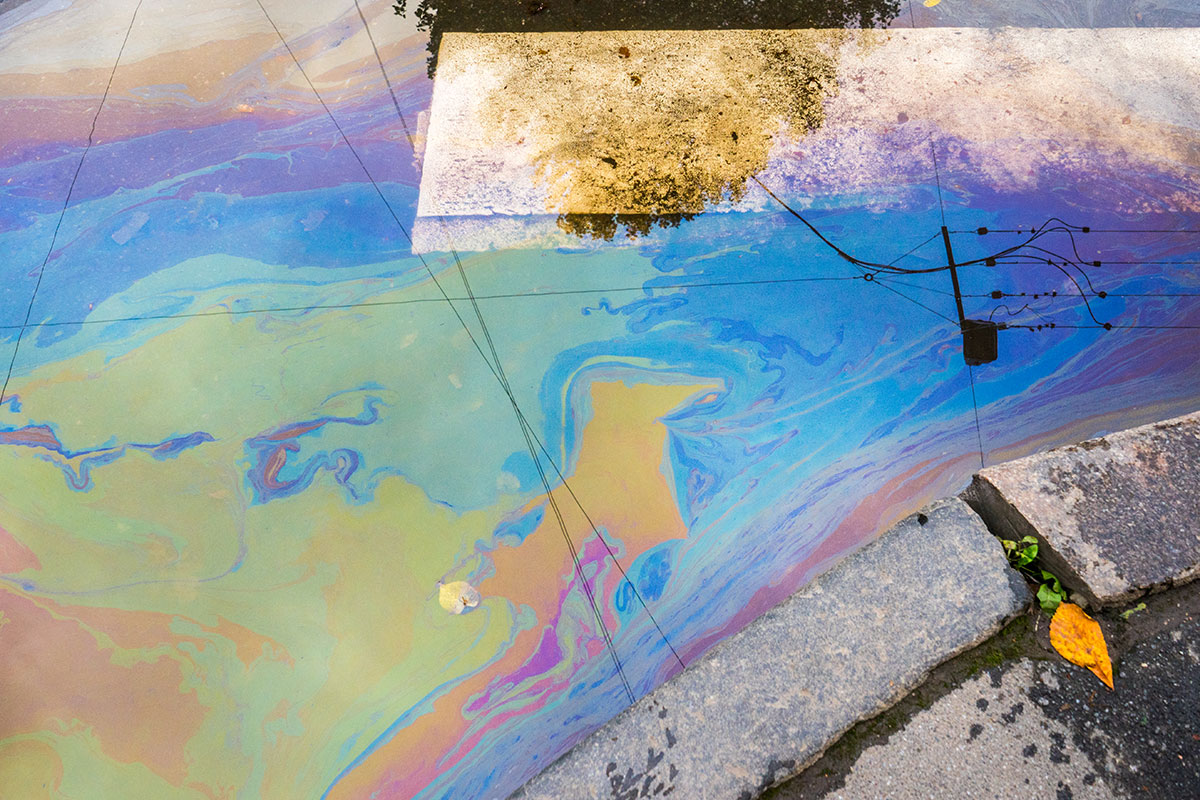Roadside Spills
Hazardous materials are part of our everyday lives. When controlled and used safely, they can be tremendously useful. When things go awry and hazardous materials become part of a roadside spill, they can cause harm to the public and the environment. Most hazardous cargo arrives at its final destination without event, but there are some instances that require emergency response and remediation.
Roadside Spill Cleanup Service

Hazardous material spills
Hazardous material spills consist of vehicular fluids, the hazardous cargo that the vehicles were transporting, or a combination of both.
Vehicular fluid spills
These kinds of spills are relatively small and include substances like fuel, transmission fluid, battery acid, and other similar fluids. Compromised vehicles may also release compressed natural gas and propane.
Hazardous cargo spills
Hazardous cargo spills are often larger and create more problems. Depending on the contents of the vehicle and the nature of the accident, hazardous cargo spills may require the immediate attention of roadside spill cleanup services.
Department of Transportation (DOT) Hazard Classes
DOT has the authority to determine which materials are considered hazardous while in transportation, and it recognizes nine classes of hazardous cargo and one category of other regulated materials. The following classes are summarized from pages seven and eight of the DOT Traffic Incident Management in Hazardous Materials Spills in Incident Clearance guide.
- Class 1: Explosives. Includes explosives that pose mass explosion, projection, fire hazards, and more.
- Class 2: Gases. Includes flammable, nonflammable, and poisonous gases.
- Class 3: Flammable liquids. Includes liquids with specific flashpoints and those that are combustible.
- Class 4: Flammable solids, spontaneously combustible items, and materials that become dangerous when exposed to water or other liquids.
- Class 5: Oxidizers and organic peroxides.
- Class 6: Poisonous and infectious materials.
- Class 7: Radioactive materials.
- Class 8: Corrosives, in any state.
- Class 9: Miscellaneous hazardous materials that are not identified elsewhere.
- ORM-D: Other regulated materials that are hazardous while in transport.
Roadside spills response protocol overview
When an incident occurs, the immediate priority is the safety of workers, the public, and the environment. HAZWOPER-certified first responders must analyze the conditions quickly and accurately to determine the best course of action, and they must possess knowledge of all pertinent regulations before they take action to mitigate the spill.
DOT mandates that all hazardous materials in transport have labels indicating what they are, which can be used to assist in reporting accidents and containing the incident.
Once the materials are identified, first responders can come up with a more detailed mitigation plan for roadside spill cleanup services and roadside waste reduction, which will be followed up by a more thorough analysis and remediation as necessary.
If your fleet requires an emergency hazardous waste cleanup or needs assistance in spill remediation, contact the hazardous waste management experts at Clean Management.






